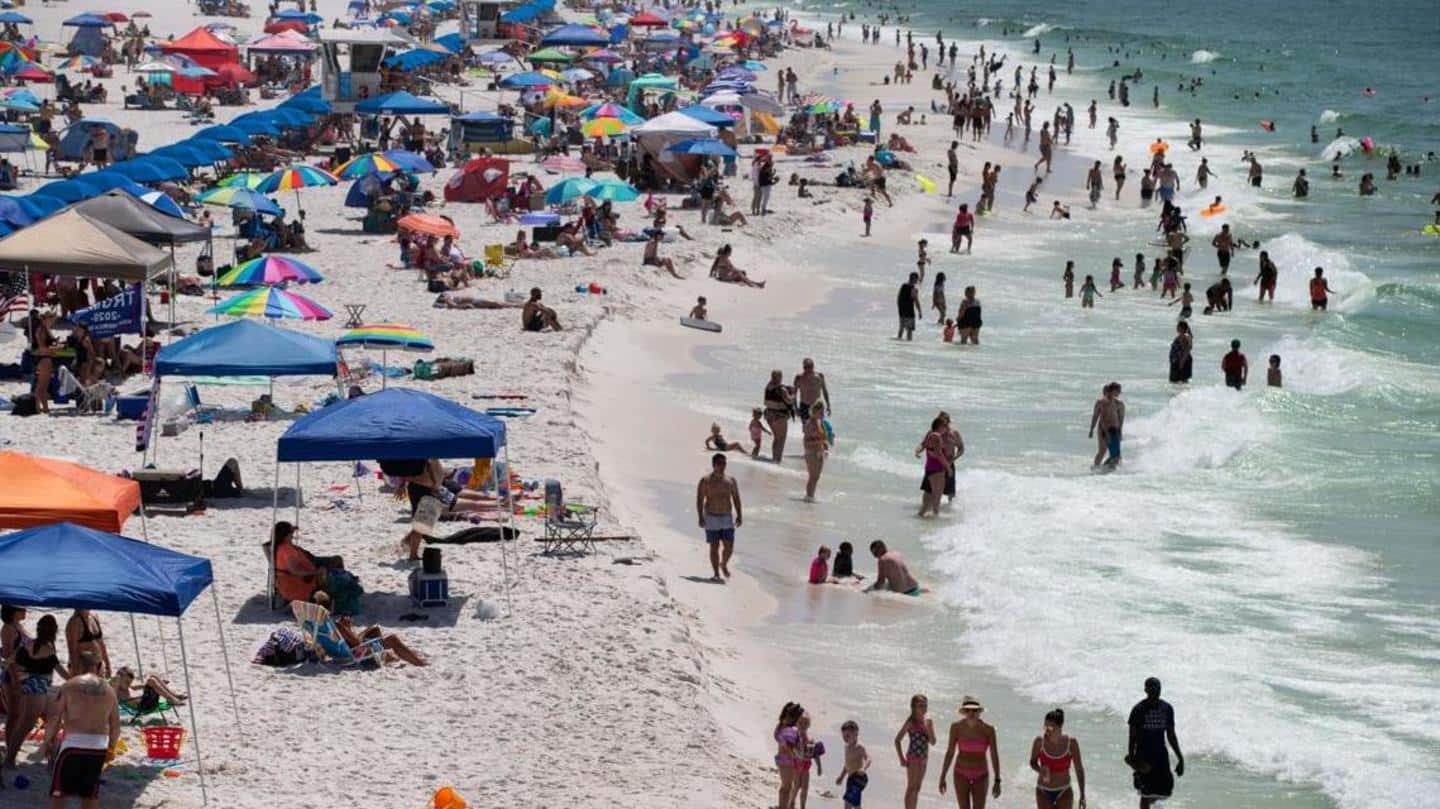
Young people not entirely safe from coronavirus, WHO reiterates
What's the story
With the seventh month of battling the coronavirus pandemic over, the World Health Organization (WHO) on Thursday repeated that guard can't be let down and blamed the younger population for driving the surge in some countries, adding that they aren't "invincible."
Instead of partying and ignoring precautions, they should be "drivers of change," said the chief of the UN body Tedros Adhanom Ghebreyesus.
Statement
Tedros said young can get infected, transmit virus, and die
Tedros told press that although it is well-established that older people, and those involved in long-term care, are more vulnerable, the younger lot isn't completely safe either.
"We have said it before and we'll say it again: young people are not invincible. Young people can be infected; young people can die, and young people can transmit the virus to others," he added.
Statement
WHO mentioned it's challenging to "convince" young people of risk
Tedros said the spike in some countries was being led by younger people who remained careless during the northern hemisphere summer.
He lamented that telling them about the risk has been difficult.
"Although older people are at a higher risk of severe COVID-19, younger people are at risk too. One of the challenges we face is convincing younger people of this risk," he went on.
Observation
Nightclubs are "amplifiers" of transmission, added a WHO expert
On similar lines, WHO's technical lead for COVID-19 Maria Van Kerkhove, said nightclubs in several areas have become "amplifiers of transmission."
"The majority of young people infected tend to have more mild disease. But that's not always consistent," the expert added.
She said some young people deal with the repercussions even after recovering, and that WHO was "just learning" about this.
Long haul
Even after recovering, young people struggle to resume their lives
In some cases, Maria said, young people struggle to breathe and have difficulty resuming day-to-day activities like going to the gym. Some suffer from extreme fatigue as well, she disclosed.
She said youngsters should follow all the precautions like washing hands repeatedly, wearing a mask, keeping a distance from others, and must not go to crowded places like bars.
US
In US, average age of COVID-19 patient dropped by 15-years
In the US, there has been growing evidence to suggest that young people are getting more infected and are responsible for the surge.
White House Health Advisor Dr. Anthony Fauci said on July 16 that the average age of a COVID-19 patient dropped by at least 15 years since the pandemic started.
At 155,285 deaths and 4,634,985 total cases, the US is the worst-hit nation.
Quote
"You have a responsibility"
"You have to have responsibility for yourself but also a societal responsibility that you are getting infected is not just you in a vacuum. You are propagating the pandemic," Fauci, the country's leading expert, said in an interview with Facebook boss Mark Zuckerberg.
Numbers
Over 17 million infected globally, deaths trumped 600,000
Globally, since its outbreak in China, coronavirus has infected 17,474,691 and killed 676,759. Countries are now adjusting to the new reality, with the annual Hajj pilgrimage in Saudi Arabia serving as an example.
The believers practised distance while praying at Mecca.
Approving the move, Tedros said, "It's not easy, but it can be done. The pandemic does not mean life has to stop."